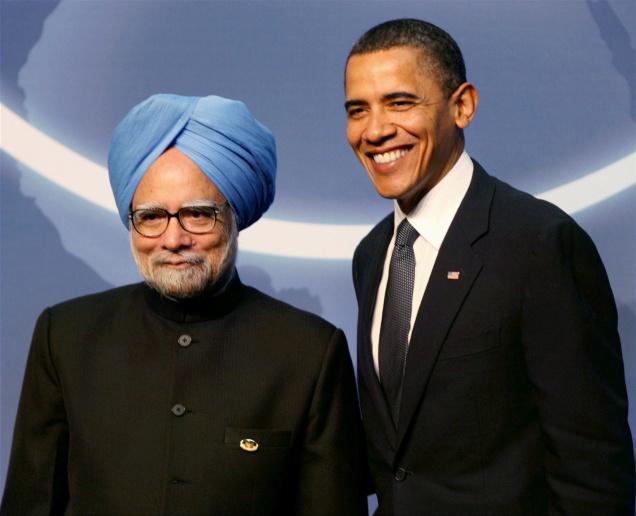Washington, September 27: Hours before Prime Minister Manmohan Singh landed in the U.S. to hold what is likely to be his final official meeting with President Barack Obama, a senior administration official said the White House continued to have “specific concerns” regarding India’s nuclear liability law.
In a background call with the media, the official however firmly pushed back on any notion that the bilateral relationship had “plateaued,” arguing that Friday’s Oval Office meeting between the two heads of government would be a “short working visit” that would address a wide range of bilateral issues and set out a roadmap for the path ahead into the 21st century, that would also consider the post-2014-elections scenario in India.
While progress with the landmark civilian nuclear energy agreement slowed after India adopted the nuclear liability law, the signing of a “pre-early-works agreement” between nuclear supplier companies in the U.S. and India’s nuclear operator, the Nuclear Power Corporation of India Limited (NPCIL), appeared imminent on the eve of Mr. Singh’s visit.
However, there does not appear to be any official planned timeframe within which an actual deal could be inked between U.S. nuclear suppliers and the NPCIL, which could lead to the production of safe nuclear energy within the terms of Indian law.
The administration official this week said that in a complex relationship such as the one that existed between New Delhi and Washington, there would always be areas where “room for more progress,” existed, and in this case those areas include concerns that the U.S. government and corporations have regarding certain Indian economic policies.
While the Obama administration has pointed out that “contentious issues” of the past, including nuclear energy, defence, and clean energy cooperation, were now “centre-pieces” of the relationship today, India is also likely to use the occasion of Mr. Singh’s visit to flag its concerns.
Specifically, New Delhi has continued to worry about the potential adverse impact that the comprehensive immigration reform bill currently working its way through the U.S. Congress could have on businesses employing skilled Indian workers.
In this regard, the White House pushed back this week saying that Indian nationals were the largest recipients of H-1B and L1 visas by a wide margin and, contrarily, the legislation under consideration brings significant benefits to Indian nationals.
It would also appear likely that the Indian delegation will push back on the increasingly strident calls by the U.S. for India to fall in line with the Montreal Protocol and scale back Indian companies’ use of refrigerant gases.
Earlier, The Hindu broke the news that if India yielded to the U.S. demand, which officials reportedly said Mr. Obama might personally bring up in his meeting with Mr. Singh, it would have to adopt alternative technologies that were 20 times more costly, mainly proprietary to a few U.S.-based companies, and in some cases “untested for safety.”
Although The Hindu has also broken a series of news items on the U.S. National Security Agency’s surveillance of Indian establishments, including India’s diplomatic posts in the U.S., neither side appeared to indicate that any further discussion of this matter would take place during Mr. Singh’s visit.
Mr. Singh’s visit to the capital will be relatively short. After meeting Mr. Obama on Friday morning, both leaders will give brief statements to the media but are unlikely to take any questions. Mr. Obama will host a luncheon for Mr. Singh.

